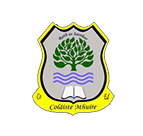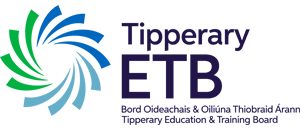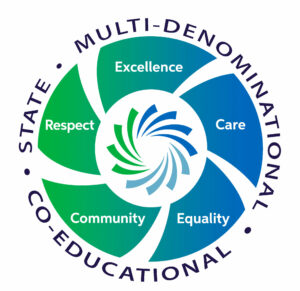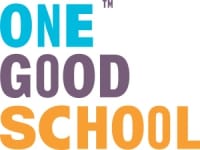Please note that the NCCA overview of the Junior Cycle Specification which can be found here.
Subject Overview
French is the main language studied over the three years of junior cycle, where students will have many opportunities to enjoy and learn the target language across the strands. They will engage in language activities and tasks such as
- communicating in the target language
- listening, reading, speaking and writing for a range of meaningful purposes
- gaining insights into the target language culture/s
- learning how the target language works.
Through these activities they will develop knowledge, understanding and skills in language, culture and literacy, thereby achieving the learning outcomes across the strands
At Colaiste Mhuire, French is a compulsory subject for 1st years, however from 2021 it has now become an option when choosing subjects for 2nd and 3rd year.
The syllabus in this language is a communicative one organised around the needs, expectations and interests which pupils bring to the foreign language classroom.
The general educational aims of each syllabus include
- contributing to pupils’ awareness of language as a system of communication
- giving pupils an awareness of another culture, and thus a more objective perspective on aspects of their own culture
- contributing to the development in pupils of the capacity to engage in fruitful transactions and interactions with others
- through the above, contributing to pupils’ overall personal and social development.
The Specifications for Junior Cycle Modern Foreign Languages aims to enable students to explore the interdependence between language and culture, to develop their appreciation of the relevance of languages to their lives for personal, social, educational, vocational and leisure purposes, and to derive enjoyment from language learning.
More specifically it encourages all students to
- actively engage in language activities and tasks, developing the capacity to understand written and spoken language
• communicate effectively and confidently in the target language in familiar contexts through a range of media
• develop their capacity to use appropriate structures and vocabulary for the purposes of communication, both written and oral
• enjoy a language-learning experience that will facilitate and encourage them to continue learning languages in future
• be reflective and autonomous in their language learning, and become actively involved in monitoring and assessing their progress
• appreciate their own and other cultures • develop skills that they can apply to other areas of study and to their lives.
Content
The programme content of each language syllabus comprises of tasks, activities and exponents. The communicative tasks are divided into two broad categories:
- those involving receptive use of the target language only
- those involving some productive use of the target language.
Within these categories tasks are grouped under headings which point to general activities and themes to which such tasks might relate. They are presented in this way for ease of reference.
A selection of linguistic exponents is indicated for communicative tasks involving productive use of the language. These are included as reference points only also
Assessment
As part of the new Junior Cycle, students must complete two CBAs (classroom based assessments) during 2nd and 3rd year. These consist of CBA1 – an oral presentation and CBA 2 – a student language portfolio and are assessed at common level.
This assessment in junior cycle MFL will optimise the opportunity for students to become reflective and active participants in their learning and for teachers to support this.
Students also complete an assessment task and a traditional end of year exam at a common level.
Current status
The new Specification for Junior Cycle Modern Foreign Languages which was introduced to schools in 2017 aims to develop communicative language skills broadly aligned with the A band (A1 to A2, basic user) of the Common European Framework of Reference for Languages (CEFR). It also aims to enable students to explore the interdependence between language and culture, to develop their appreciation of the relevance of languages to their lives for personal, social, educational, vocational and leisure purposes, and to derive enjoyment from language learning.
Language week and French Breakfast Morning
Each year the French department hosts a Language week to promote the French language and subject in the school. This involves trying some French cuisine, watching French films and providing students with an opportunity to speak the language outside of the classroom with their peers.
A French breakfast morning is also held for 1st years where they get to enjoy some croissants and watch a French film.



